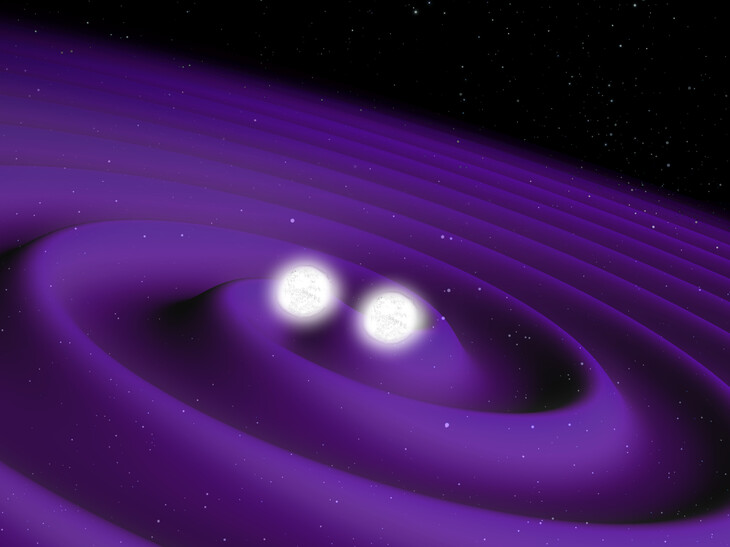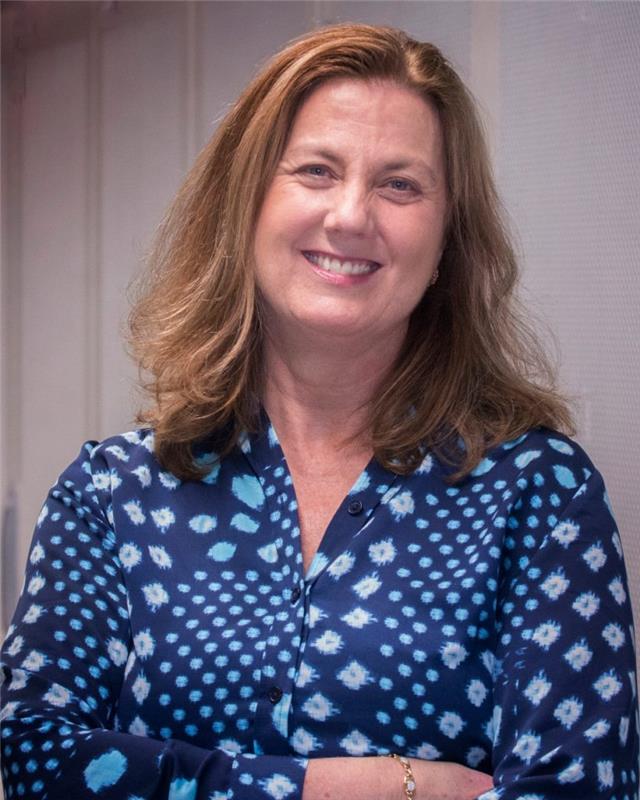
$3.4 million NSF grant aims to make LIGO multimessenger discoveries commonplace
Posted on August 13, 2021Multi-messenger astronomy requires the coordination of observations from diverse sources — such as neutrinos and gravity waves — to study the universe
UNIVERSITY PARK, Pa. — A $3.4 million grant from the National Science Foundation (NSF) will help develop software and services to discover gravitational waves from black holes and neutron stars in real-time in order to facilitate the detection of prompt electromagnetic counterparts.
The investment is aimed at the NSF-funded Laser Interferometer Gravitational-wave Observatory — or LIGO, a critical tool that has powered a flurry of recent scientific discoveries and enriched our knowledge of the universe through gravitational waves detected from merging neutron stars and black holes, according to Chad Hanna, an associate professor of physics & astronomy and astrophysics in Penn State’s Eberly College of Science and an Institute for Computational and Data Sciences co-hire.
Specifically, the funds will be used to develop robust signal processing software and the creation of a suite of cyberinfrastructure services that will allow scientists to analyze LIGO data in real time. The goal is to allow scientists to make more discoveries, as well as be able to easily share those discoveries with the scientific community, which ultimately, will improve our understanding of the universe, Hanna added.
“We hope that this grant will benefit the entire scientific community and that, with it, we’ll make robust detections of increasingly more gravitational waves from neutron star mergers, and other signals that might have electromagnetic or neutrino counterparts,” said Hanna.
In 2017, LIGO kicked off a new era in astronomical observation, providing astronomers and astrophysicists with evidence of the first detection of gravitational waves from colliding neutron stars, as well as helping researchers settle the origin of mysterious gamma ray bursts, a phenomenon that has been debated by scientists for decades.
However, Hanna said that these impressive discoveries may be just the initial set of breakthroughs that LIGO can enable.
“We want more — we want to enable as many discoveries as possible because we learned so much from each one,” said Hanna. “And this grant is really trying to support the cyberinfrastructure that can help to make those discoveries more commonplace.”
Hanna’s group leads efforts to detect gravitational waves in real-time to support multi-messenger astrophysics. The group is also involved with developing detection algorithms and software to identify the neutron star mergers in the gravitational wave data and using machine learning to cut through noisy data gathered during the gravitational wave observations. Both are integral to the real-time infrastructure and improvements will help facilitate future LIGO research, added Hanna.
Hanna credited the support he receives from the ICDS team in both helping his own research, as well as the hardware and software that is helping a large part of the astronomical community involved in research boosted by LIGO.
ICDS also provided initial funding through a seed grant for Hanna’s team to begin research on using machine learning to manage noise in data collected by LIGO.
The LIGO era
Astronomers have relied on LIGO, which has been termed a “marvel of precision engineering,” to peer into the universe in ways that were once impossible. LIGO is two detectors spread nearly 1,900 miles apart. One detector is in Hanford, Washington, and the other in Livingston, Louisiana.
Scientists using LIGO have produced some of the biggest astronomical breakthroughs of the 21st century and, arguably, of all time. In 2016, astronomers used LIGO data, along with other scientific instruments and equipment, to identify evidence of gravitational waves, the ripples of spacetime predicted more than a century ago by Albert Einstein. These findings also led to the 2017 Nobel Prize for Physics.
LIGO also detected the merger of two neutron stars that created a black hole and an explosion of light in 2017. Even more recently, researchers used LIGO to confirm the detection collisions between a black hole and a neutron star, not once but twice within 10 days.
The award was part of NSF’s Physics at the Information Frontier program, which supports the enablement of advanced computational technologies to address important scientific goals.
Originally published on Penn State News
Share
Related Posts
- Professor receives NSF grant to model cell disorder in heart
- Featured Researcher: Nick Tusay
- Multi-institutional team to use AI to evaluate social, behavioral science claims
- NSF invests in cyberinfrastructure institute to harness cosmic data
- Center for Immersive Experiences set to debut, serving researchers and students
- Distant Suns, Distant Worlds
- CyberScience Seminar: Researcher to discuss how AI can help people avoid adverse drug interactions
- AI could offer warnings about serious side effects of drug-drug interactions
- Taking RTKI drugs during radiotherapy may not aid survival, worsens side effects
- Cost-effective cloud research computing options now available for researchers
- Costs of natural disasters are increasing at the high end
- Model helps choose wind farm locations, predicts output
- Virus may jump species through ‘rock-and-roll’ motion with receptors
- Researchers seek to revolutionize catalyst design with machine learning
- Resilient Resumes team places third in Nittany AI Challenge
- ‘AI in Action’: Machine learning may help scientists explore deep sleep
- Clickbait Secrets Exposed! Humans and AI team up to improve clickbait detection
- Focusing computational power for more accurate, efficient weather forecasts
- How many Earth-like planets are around sun-like stars?
- SMH! Brains trained on e-devices may struggle to understand scientific info
- Whole genome sequencing may help officials get a handle on disease outbreaks
- New tool could reduce security analysts’ workloads by automating data triage
- Careful analysis of volcano’s plumbing system may give tips on pending eruptions
- Reducing farm greenhouse gas emissions may plant the seed for a cooler planet
- Using artificial intelligence to detect discrimination
- Four ways scholars say we can cut the chances of nasty satellite data surprises
- Game theory shows why stigmatization may not make sense in modern society
- Older adults can serve communities as engines of everyday innovation
- Pig-Pen effect: Mixing skin oil and ozone can produce a personal pollution cloud
- Researchers find genes that could help create more resilient chickens
- Despite dire predictions, levels of social support remain steady in the U.S.
- For many, friends and family, not doctors, serve as a gateway to opioid misuse
- New algorithm may help people store more pictures, share videos faster
- Head named for Ken and Mary Alice Lindquist Department of Nuclear Engineering
- Scientific evidence boosts action for activists, decreases action for scientists
- People explore options, then selectively represent good options to make difficult decisions
- Map reveals that lynching extended far beyond the deep South
- Gravitational forces in protoplanetary disks push super-Earths close to stars
- Supercomputer cluster donation helps turn high school class into climate science research lab
- Believing machines can out-do people may fuel acceptance of self-driving cars
- People more likely to trust machines than humans with their private info
- IBM donates system to Penn State to advance AI research
- ICS Seed Grants to power projects that use AI, machine learning for common good
- Penn State Berks team advances to MVP Phase of Nittany AI Challenge
- Creepy computers or people partners? Working to make AI that enhances humanity
- Sky is clearing for using AI to probe weather variability
- ‘AI will see you now’: Panel to discuss the AI revolution in health and medicine
- Privacy law scholars must address potential for nasty satellite data surprises
- Researchers take aim at hackers trying to attack high-value AI models
- Girls, economically disadvantaged less likely to get parental urging to study computers
- Seed grants awarded to projects using Twitter data
- Researchers find features that shape mechanical force during protein synthesis
- A peek at living room decor suggests how decorations vary around the world
- Interactive websites may cause antismoking messages to backfire
- Changing how government assesses risk may ease fallout from extreme financial events
- Penn State’s Leadership in AI Research
- Symposium at U.S. Capitol seeks solutions to election security
- Using social media to solve social problems- study funded by ICS seed grant

